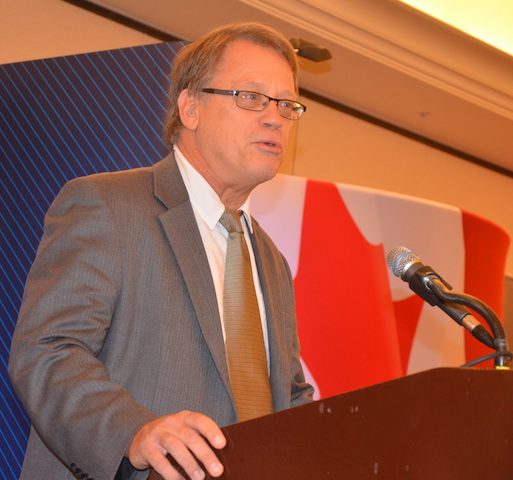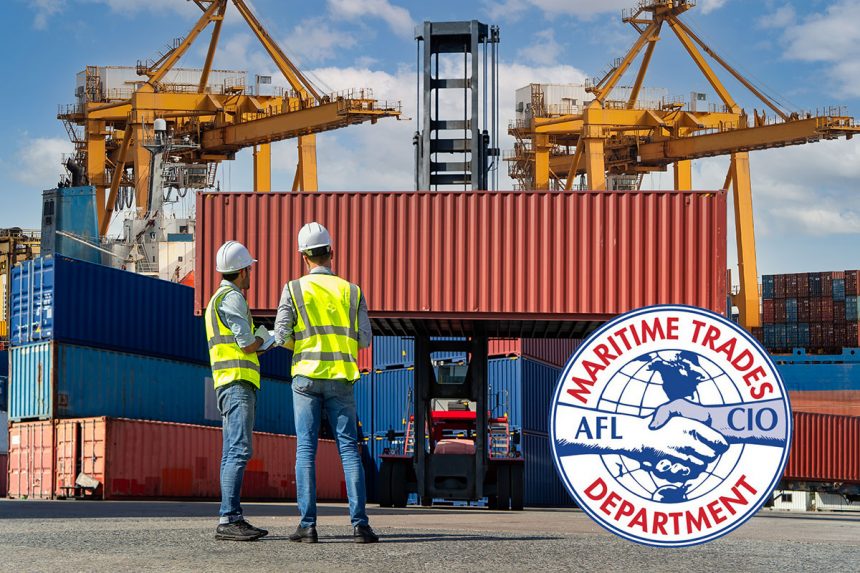
Between the discussion and debate regarding the U.S.-flag maritime industry during the MTD Convention in St. Louis on October 19 and 20 came a history lesson that was pertinent to understand what is happening today.
Author William Geroux provided delegates and guests with a summary of some of the individual stories he gathered in writing The Mathews Men: Seven Brothers and the War Against Hitler’s U-Boats (Penguin Random House LLC, 2016).
“My book is the non-fiction account of the largely forgotten heroics and sacrifices of the U.S. Merchant Marine during World II,” Geroux opened. “I tell this story through the adventures – and it really is an adventure story – of an unusual brotherhood of merchant sea captains and merchant mariners and their families from Mathews County, Virginia.”
Speaking on October 20, Geroux, who is from Virginia Beach, Virginia, focused the book’s attention on the men from Mathews County, which is along the Chesapeake Bay on the state’s Eastern Shore. He noted generations of men from the community went to sea in order to make something of themselves, and because there wasn’t much else toGeroux’s work centers around the Hodges family. He collected the stories from those who sailed and are still alive to recall what happened as well as accounts from surviving family members, and from other families from Mathews County.
As those who have studied the period just after the U.S. entered World War II know, many merchant ships of that era were World War I vintage. They were slow, their hulls were not armored, and they were alone. The Navy could not offer protection for merchant ships at the start of the war.
As the author explained, U-boats sat off the coast of the United States and attacked the vulnerable ships. Many Mathews men were on vessels that were torpedoed. Some survived, others didn’t. Yet those who came home returned to the sea understanding the risks before them.
Geroux stated mariners able to survive an attack could face days, weeks or months drifting in an open lifeboat awaiting rescue. While the war on merchant shipping was ruthless, he recalled several tales of U-boat commanders assisting the stranded mariners with food, water and directions. One in particular surfaced and “astonished the men in the lifeboat by asking them, ‘How are the Brooklyn Dodgers doing this season?’” (Seems the commander had grown up in Brooklyn as a boy and returned to Germany with his family prior to the war.)
Geroux wrapped up by telling the audience that many of the people he interviewed wanted the public to know how they helped win the war.
“One of the Mathews guys told me specifically, he said, ‘Maybe when your book comes out, my grandkids will finally believe that I did something worthwhile during World War II.’ I sincerely hope that the book has had that effect.”
Prior to writing the book, Geroux was reporter for 25 years with The Richmond Times-Dispatch. After that, he worked with Maersk Lines Limited.

